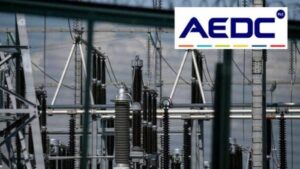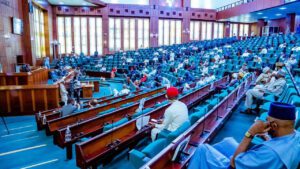Dangote Refinery: Inauguration will not translate to immediate production of petroleum products — Experts
The ceremony around the planned visit by the Nigerian President to the Dangote Refinery on May 22, 2023, will peak with a cutting of the ribbon, inaugurating the 650,000 Barrels per stream Day Plant, located in the Eastern flank of Lagos, the country’s commercial city.
Everyone, it seems, is looking forward to the production of petroleum products from the plant after that symbolic activity but it will not happen.
As President Muhammadu Buhari leaves office a week after commissioning one of the largest single train hydrocarbon processing plants on the planet, he could be forgiven for believing he had had his wish to be in such a large place but technology does not sit well with politics.
The ongoing technical commissioning process has not gotten anywhere close to the point of introducing raw hydrocarbon into the plant, let alone delivering petroleum products.
One key challenge of Nigeria’s chattering classes is that they hardly look up the regulation. Hydrocarbon will be introduced only when the Nigerian Midstream Downstream Regulatory Agency (NMDPRA) approves and issues Licence To Operate the Refinery to Dangote.
Speculations about inauguration and commissioning are just, well, speculations. Both words do not appear anywhere in the Procedure to License a Refinery in the Nigerian law.
The three stages are License to establish a Refinery, approval to construct Refinery, License to Operate the Refinery and inauguration or commissioning do not appear close.
So the Refinery can be inaugurated or commissioned as the Licensee desires, as long as no attempt is made to operate the Refinery by introducing crude oil and make products for sale, it does not concern NMDPRA.
The claim that some “large sub-sea pipeline infrastructure connected to Oil and Gas blocks in the Niger Delta region for supply of crude feedstock” is a false narrative. What’s in the plan is that Single Point Mooring (SPM) buoys will play the transportation role in input crude delivery and output petroleum products.
We live in a society where optics trumps everything. Buhari has been president for 8 of the 9 years that the Refinery project has been on. What is wrong with Dangote asking the President to inaugurate the Refinery so his name is on the marble when the Refinery becomes fully operational? After all no law will be breached by such gesture?
That said, Aliko Dangote the billionaire owner of the Refinery is determined that the 19billion-dollar project, the second of his three, hydrocarbon processing mega projects (Fertilizer, Refinery and Petrochemicals) is delivered by end of 2023.
The technical work has gone far, involving trial-running every single equipment, which has taken a while because of the lengthy time of construction. Some equipment were installed six years ago, and were just standing there in the air, water or even underground. Anything, literally could have happened.
As of February 2021, the installation of the Crude Distillation equipment had been completed. So had the kitting up of the Residue Fluid Catalytic Cracking Unit (RFCCU).
Supply chain challenges thrown up by the COVID-19 did slow down work, but the construction of Africa’s largest hydrocarbon processing factory picked up steam again in mid-2021.
“The electrical and instrumentation works are usually invisible to the gaze of non-refinery workers, but they are key. Their installation needed extreme care and it consumes over 30 per cent of the Refinery construction time,” say several managers familiar with the project.
“A lot of our contractors are Chinese. Those who went home couldn’t come back quickly, but the project workflow recovered and those installations especially that of the Crude Distillation Column, which arrived Nigeria in December 2019 were expedited.
“We will have 15 process units in the Refinery and they must all work together,” the managers tell us.
The operations planning will emphasise the mantra at the commissioning: we must flow everything out with air, then do it with water, then with steam, then with air again.” This is all to ensure that the likelihood of moisture absorption is zero, as the contrary will lead to cracks.
“The equipment must be pickled. What that does is that it oxidizes the facility.” The Dangote Refinery is significantly an Indian supervised operation.
But a significant percentage of the 1,000 Nigerian engineers sent to training in India for the eventual operations of the facility, have returned and are currently engaged on site.
The relationship between the Nigerian crude oil refining sector and Indian engineering expertise goes back to 1988, when the second (larger) refinery in Port Harcourt, the major city in the country’s oil producing Delta region was being constructed.
“Some of the experts working on Operations Planning were part of the construction of the Port Harcourt Refinery 35 years ago.”
Mr Dangote initially announced the likelihood of the project in 2013. But it was at the All-Convention Luncheon at the Annual Conference of the Nigerian Association of Petroleum Explorationists NAPE, in November 2014 that he provided the first relatively comprehensive details of the facility. He told the roomful of geoscientists that the capacity had increased from 500,000 BSPD to 650,000 BSPD.
Dangote Industries was advised by Jacobs Engineering and it licensed the Honeywell UOP for the basic engineering design. On a daily basis, the facility will have the capacity to produce 59million litres of gasoline, 20million litres of kerosene and 9million litres of diesel and others.
The construction has taken a while and has been the most excruciating economic challenge Nigeria has ever faced. Would Dangote Industries have delivered this project much earlier if it had awarded it to a world-class EPC contractor like Bechtel, TechnipFMC, Siemens, KBR?
“Yes,” said Alex Ogedengbe, a retired Group Executive Director at NNPC who was involved in the construction of the Warri and Port Harcourt Refineries in the 1980s. “There are just about six or seven such EPC contractors in the world,” he explained. Mr Ogedengbe was speaking at a private webinar organised by oil and gas analyst, Ronke Onodeko in April 2020.
One more advantage of building it yourself: all the equipment you purchase for logistics and construction purposes are yours.




